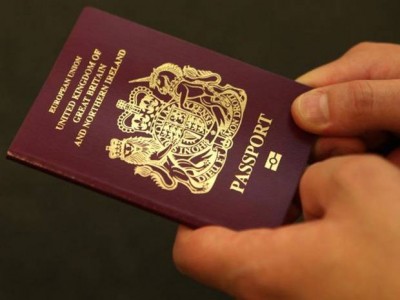Citizenship and Terrorism in Australia: The “Abbott Recipe”

“A sole Australian citizen, terrorist or not, is our responsibility. We can’t wash our hands of the fact. We can’t pretend they’re not Australian when they are.” – Christopher Pyne, Australian Education Minister, Sydney Morning Herald, May 29, 2015
Canada has set a cracking pace with its measures revoking the citizenship of dual nationals convicted of terrorism, treason or spying for foreign governments. It is a debate suggesting how dispensable the idea of citizenship has become for governments, notably those insisting on the sacred halo that is human rights. The great red herring has come in the form of returning foreign fighters and home grown “terrorism” – but only those fighting on the side of fundamentalist Islam. It is also worth nothing that it is only those fighting on the side of fundamentalist Islam frowned upon by Western governments. We all pick and choose our devils and saints.
The shoddy stance has certainly impressed the Australian Prime Minister, Tony Abbott, who seems to have been in a competitive race with his Canadian counterpart, Stephen Harper, and Britain’s recently re-elected David Cameron. The race to curbing the freedoms of citizens has proven to be a frantic, even hectic one. Each has been attempting to lay down proposals before their cabinets as to how to enlarge the scope of executive discretion over when, and how, citizenship can be stripped.
Debate on the subject has been confined to an executive proclamation, and whispers in the halls of suspicious power. The Murdoch press have cheered from the stands, finding little fault in an idea that would reduce citizenship to a rump concept mutable by a cabinet minister. But it has transpired that the enthusiasm of the prime minister may have been misplaced. Some outlets in Fairfax media are pondering if there has been a “breakdown in trust” between various ministers.
Five cabinet ministers of the Abbott government were supposedly in disagreement with the idea of granting immigration minister Peter Dutton the power to strip Australian terror suspects of citizenship – this, even in the event that it is their only citizenship. Such measures suggest removing Australian citizenship even in the absence of conviction for any crime or a judicial process. It again smacks of executive overreach and the paranoid security complex.
“This is an extraordinary proposition,” suggested the communications minister, Malcolm Turnbull, in the cabinet meeting on Monday night (Sydney Morning Herald, May 29). Extraordinary, that is, to strip someone of their citizenship, “Only if you are someone the minister thinks is a terrorist.”
The Attorney-General, George Brandis, an otherwise enthusiastic advocate for meta-data retention and immunising Australia’s intelligence services from legal scrutiny, would have to concede the obvious point that, as the Attorney-General, it was his “job to stand for the rule of law.” A vocal agriculture minister Barnaby Joyce reiterated that the drafted suggestions for Dutton were paltry in their protections: no jury, an absence of concrete proof connecting the suspect to terrorism, and the lack of genuine legal process. “Isn’t that what we have courts for?”
Even the Australian foreign minister, Julie Bishop, is unsure how far the proposals should go. Bishop’s public address was less frank, but still hinting at the fact that the citizenship proposals had been born in a lust of executive enthusiasm. “We expect there to be a national conversation about the rights and responsibilities of citizenship and about a proposal to strip those who undertake terrorist activities and do harm to Australians of their citizenship.” In all this, Bishop surmises that it “comes down to a contest of ideas.”[1]
Independent senator Nick Xenophon typically advanced the view that the plans to strip citizenship were half-baked, the ill-thought through experiments of those crazed by worries of insecurity. Not entirely sure what legal implications of removing a person’s citizenship were, the senator ventured that, “If you are going to leave someone completely stateless, then I don’t know how that could work, but certainly if someone is at risk to the community then they should not be out in the community.”
There are many voices from the international law fold who have pointed out that statelessness is the ultimate condition of vulnerability. It is the policy incentive of totalitarian governments, made infamous by Nazi Germany’s stripping of German citizenship from Jews. It is the imperative of governments keen to expel and move whole populations. As the UNHCR explains, “Nationality is a legal bond between a person and a State. Nationality provides people with a sense of identity but, more importantly, enables them to exercise a wide range of rights.”[2]
The UN Convention relating to the Status of Stateless Persons (1954) and the UN Convention on the Reduction of Statelessness (1961) were born in the aftermath of such tyrannical acts. Australia saw fit to ratify them.
In recent years, the customary appending of a signature by Australian politicians to international conventions has not discouraged them from seeking ways to evade the implications of such documents. The populist train has gained speed. The current proposals on Abbott’s part effectively evade the UN protections, allowing governments to run roughshod over subjects.
The argument made by Dutton and Abbott is that a person can still apply for citizenship in another country – assuming that person to be either a dual national, irrespective if that person will be allowed to get it. It thereby voids law courts and mocks the judiciary. And it is grotesque in its deemed efficiency – precisely why it has proven so attractive.
Dr. Binoy Kampmark was a Commonwealth Scholar at Selwyn College, Cambridge. He lectures at RMIT University, Melbourne. Email: [email protected]
Notes
[1] http://www.theguardian.com/

